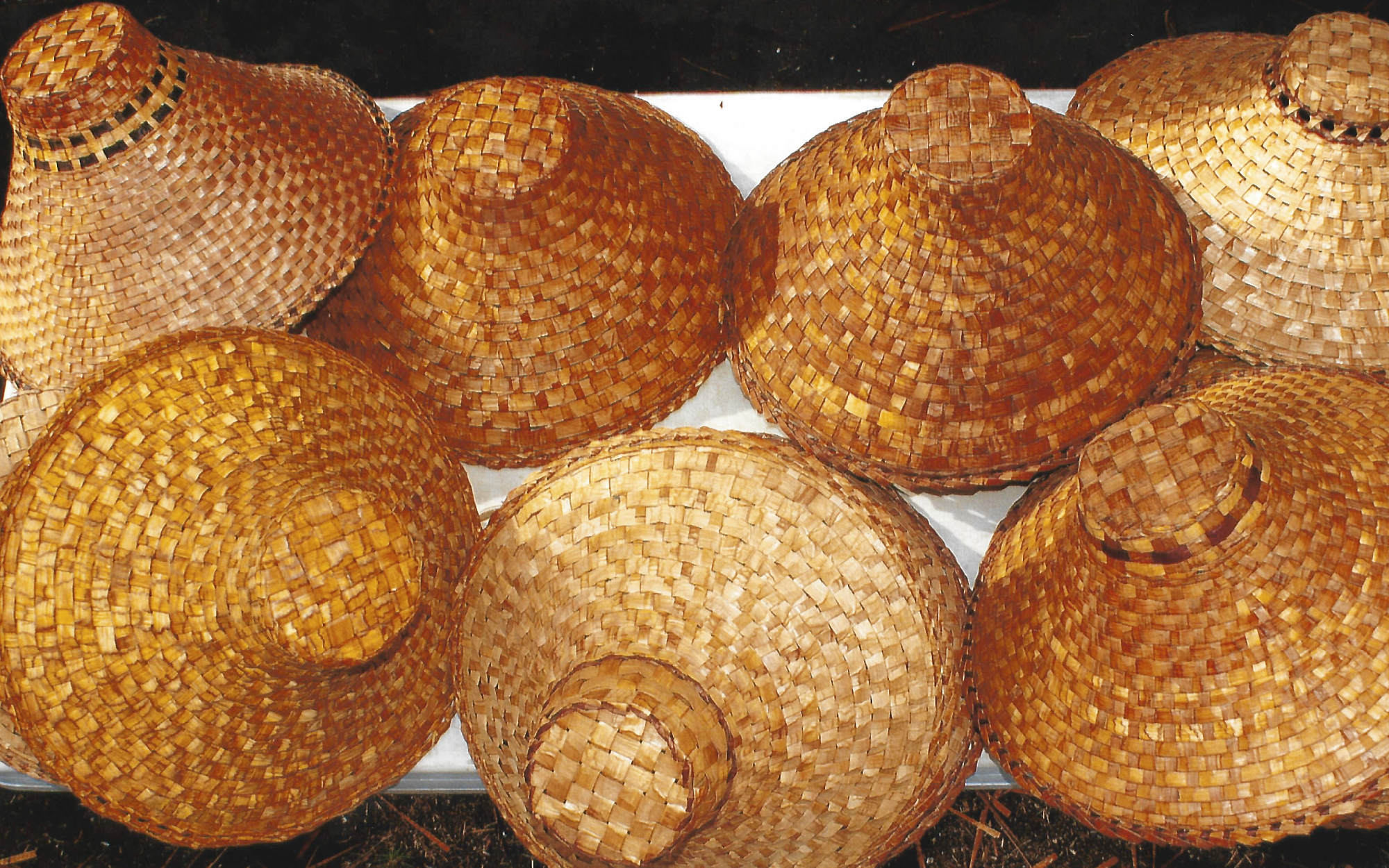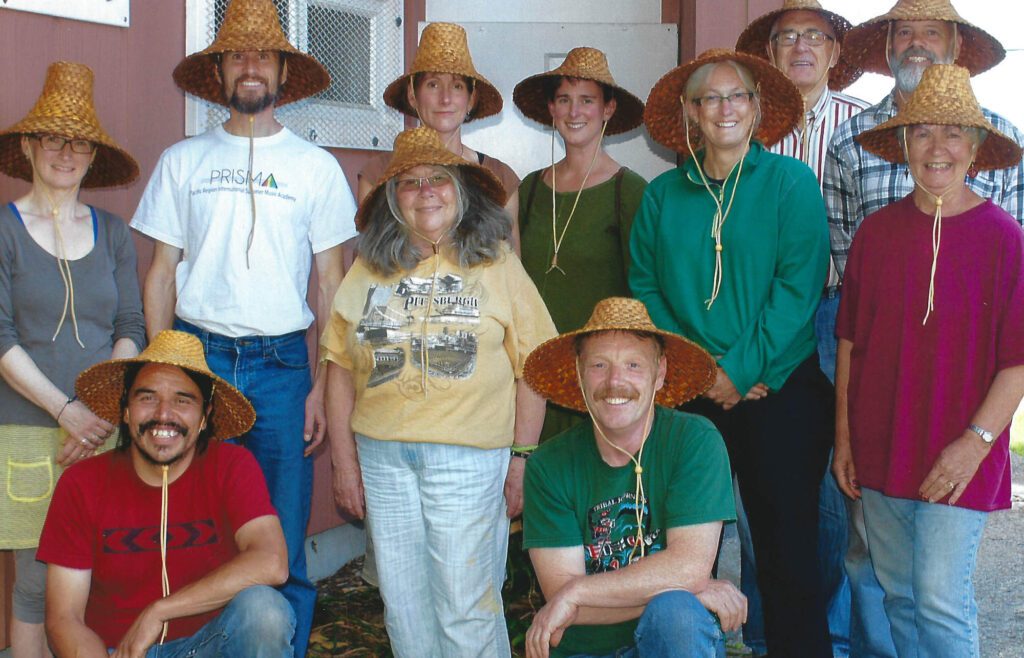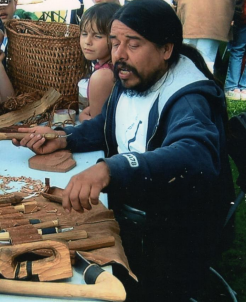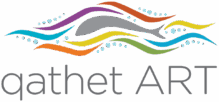
with Ivan Rosypskye
April 15 & 16, 2023
at qathet Art Centre
Workshop information:
The weaving of a cedar hat begins in the spring, “when the frogs sing”, with the gathering of strips of bark from the base of a western red-cedar (Thuja plicata). Only a portion of the bark around the base of the tree is used, so the tree is not killed by the process. The bark is often stored over the summer and processed for weaving in the winter months. The cedar has been ethically and culturally sourced for this workshop and each participant will receive mentorship on how to form and weave a cedar hat in this two day weekend workshop.
Each participant will receive skill sharing, material and time to complete and take home a hand crafted woven cedar hat.
Dates and Price:
April 15 – 11:30am to 4:30pm
April 16 – 10am to 3pm
$350
Minimum deposit of $50 must be paid at registration or payment in full of $350.
Full payments must be received by April 10 to ensure your seat and accommodate the waitlist.
Any questions or concerns please email qathetART@gmail.com.

About THe Instructor
Ivan Rosypskye
Ivan Rosypskye began practicing his craft when he was 15, and has been weaving for over 30 years since. Ivan is self taught, with guidance from others, and as he says, “It’s in my blood”. He completed his first hat in 2001, and since then has made hundreds of cedar hats.
Ivan’s artistic career began at the Namgis Centre in Alert Bay. The Centre had a carving room in a nearby former residential school where carvers Doug Cranmer and Wayne Alfred (both Kwakwaka’wakw) taught at that time. Ivan did not carve, he watched, and he listened. They exchanged many stories; “the experience”, he says, “was a big eye opener, it taught me a lot about residential schools”.
It was soon after that experience, that Ivan met Art Thompson (Ditidaht band of the Nuu-Chah-Nulth Nation) and asked if he could volunteer with the canoe carving Art was leading in the Tla’amin community. Art Thompson was extremely forthcoming and shared his skill and experience freely. Ivan is as forthcoming today with all of his students as Art was with him, at the time when it mattered most.
Phyllis Dominic, Tla’amin elder, taught him how to make canoe bailers from cedar bark, a skill that provided his only pocket money when he went on his first canoe journey. On that first journey he met Ditidaht hat weavers and learned the basics of hat weaving. The canoe journeys were a huge influence on Ivan; he learned problem solving skills and how to bring up a family in a better way. Ivan presented his first cedar hat to the Tla’amin elders and asked what they thought. The elders recalled the excellent weaving and design of the ancestors and gave their recommendations for improvement to Ivan.
Victor Reese (Tsimshian) was another major influence on Ivan. Victor had a contract in Powell River to carve a creation panel, but his sight was so affected by diabetes that he could not see well enough to carve the work. Ivan acted as his assistant and carved the work under his direction. Ivan also studied Susan Point’s work (Musqueam Coast Salish), an influence that can be seen in the deceptively simple flowing designs of Ivan’s carving today.
In late 2016 Ivan was chosen as one of three carvers to participate in a canoe carving under the direction of master carver Joe Martin (Tla-o-qui-aht Tribe of the Nuu-Chah- Nulth Nation). The project involved bringing canoe making skills back to the Tla’amin community by training three carvers to make a canoe from a cedar log. Thousands of people observed the carving, talked with the carvers, and many participated. Ivan had many discussions with Joe Martin, who impressed Ivan with his knowledge about the culture and how to carry oneself.
Ivan has taught many hundreds of students and is an excellent teacher and public speaker. Ivan has received several private and public commissions to carve works for display. He has been contracted by the local school division to carve a series of traditional welcome figures and provide young students with hands-on experience in First Nations culture. The Powell River Public Library houses his Frog Mask, the Wildwood Pub commissioned the “Mother bear feeding her cubs” and a reconciliation pole stands at the Anglican church.

